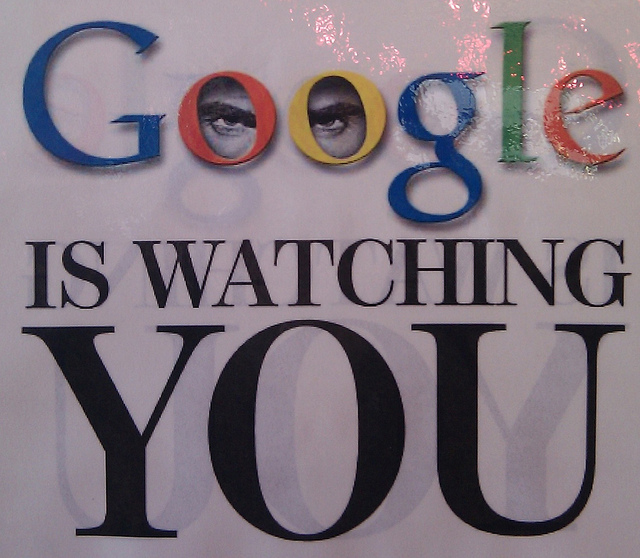
Google will now track credit and debit card transactions at retail stores, in an effort to assess the effectiveness of their online advertising.
It will work like this: A retailer places an ad with Google, which then targets likely buyers based on all the data it collects from our online visits. With a tie-in to the retailer’s records, Google can associate the store’s customers with the ads, thereby proving their effectiveness.
Google is reassuring the public that the information will be converted to numbers so that the individual purchasers will not be identified, thus protecting their privacy.
Does that make you feel better?
The public would be up in arms if the government collected so much information about us. Is it all that much better if a private corporation collects so much information about us?
But what if the data show that online advertising does not work all that well? A television commercial, representing the biggest advertising vehicle that Google competes with, may be far more sophisticated in persuading people to buy things than those annoying little boxes that Google puts up when we are trying to do something else online. Perhaps the technology will develop to the point of self-destruction, destroying Google’s business model.
At any rate, just remember that Google is watching you. And not only when you are online.
UPDATE: This article explains more. It says that Google already has access to 70% of all U.S. credit and debit card transactions! This is “through partnerships with other companies that track that data.” How can that be allowed?
From Elizabeth Dwoskin and Craig Timberg, Google now knows when its users go to the store and buy stuff – The Washington Post:
Google will begin using data from billions of credit and debit card transactions — including card numbers, purchase amounts and time stamps — to solve the advertising juggernaut’s long-standing quest to prove that online ads prompt consumers to make purchases in brick-and-mortar stores, the company said on Tuesday.
The advance, which enables Google to tell retailers how many sales they created through their digital ad campaigns, is a step toward what industry insiders have long described as the “holy grail” of digital advertising. If effective, the program could help persuade marketers to choose Google’s services over the television advertising that still gobbles up the lion’s share of retailers’ ad budgets.
“Google — and also Facebook — believe that in order to get digital dollars from advertisers who are still primarily spending on TV, they need to prove that digital works,” said Amit Jain, chief executive of Bridg, a digital advertising startup that matches online to offline behavior.
The announcement comes as Google is working to move past a advertising boycott of YouTube, its lucrative video site, after news reports that ads for mainstream brands were appearing alongside extremist content, including sites featuring hate speech and violence. But Googles’s latest move to tie people’s digital trails to their real world behaviors is likely to renew concerns over whether technology giants and their affiliated companies know too much about people’s lives — and whether they disclose enough about how they collect and use that information.
Google collects massive amounts of personal data from smartphones and desktop computers, including location information from Google Maps and other apps, the search terms that people use in a Google search, and people’s Web browsing habits. All of that information is tied to the real identities of users when they log into Google’s services.
Google executives say they are using complex, patent-pending mathematical formulas to protect the privacy of consumers when they match a Google user with a shopper who makes a purchase in a brick-and-mortar store. The mathematical formulas convert people’s names and other personal information into anonymous strings of numbers. The formulas make it impossible for Google to know the identity of the real-world shoppers, and for the retailers to know the identities of Google’s users, Google executives said. The companies know only that a match has been made.
[Keep reading. . .]
Illustration by Patrick Barry, “Google got a new PR department,” Flickr, Creative Commons License.


















